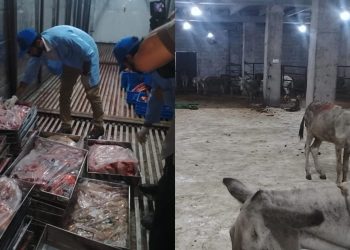ISLAMABAD: The inflation rate edged up to 8.7 percent from 5.7 percent in January due to surge in prices of food and energy, data released by the Pakistan Bureau of Statistics (PBS) showed.
According to the report, the 8.7 percent inflation was the highest in the past four months, which also reversed the downward trend in the inflation index.
On a month-on-month basis, inflation increased by 1.8 percent mainly due to an increase in prices of cooking oil, pulses, petroleum products and electricity charges for end consumers.
Urban CPI rose to 8.6 percent vs. 5.0 percent in the previous month, while Rural CPI clocked in at 8.8 percent vs. 6.6 percent in January 2021. Core inflation, however, remained moderate during the month under review.
Urban core inflation was recorded 6.4pc in February vs. 5.4pc in January. Rural core inflation, on the other hand, fell to 7.7pc vs. 7.8pc in the previous month. During July-February FY21, urban and rural core inflation have averaged 5.6pc and 7.7pc, respectively.
Food inflation also rose in both urban and rural areas. In cities, food inflation increased to double digits at 10.3%, according to the PBS. In rural areas, the food inflation was calculated at 9.1%.
The government’s claim of reducing inflation to the lowest level in its two-and-a-half-year tenure also proved to be short-lived after it increased electricity tariff coupled with a surge in commodities’ prices in the international and domestic markets.
In January 2021, the inflation reading had slipped to 5.7%, which led to congratulatory tweets from Prime Minister Imran Khan and Planning Minister Asad Umar.
The 8.7% inflation rate was significantly higher than the forecast of the Ministry of Finance that expected inflation to remain in a range of 5.5% to 7.5% in February just three days ago.
The major items that saw price increase were eggs 48%, chicken 36%, condiments and spices 31%, wheat 24%, mustard oil 23%, beans, sugar and vegetable ghee 17%, cooking oil 15.4%, milk 15% and wheat flour bag 13.5%.




































